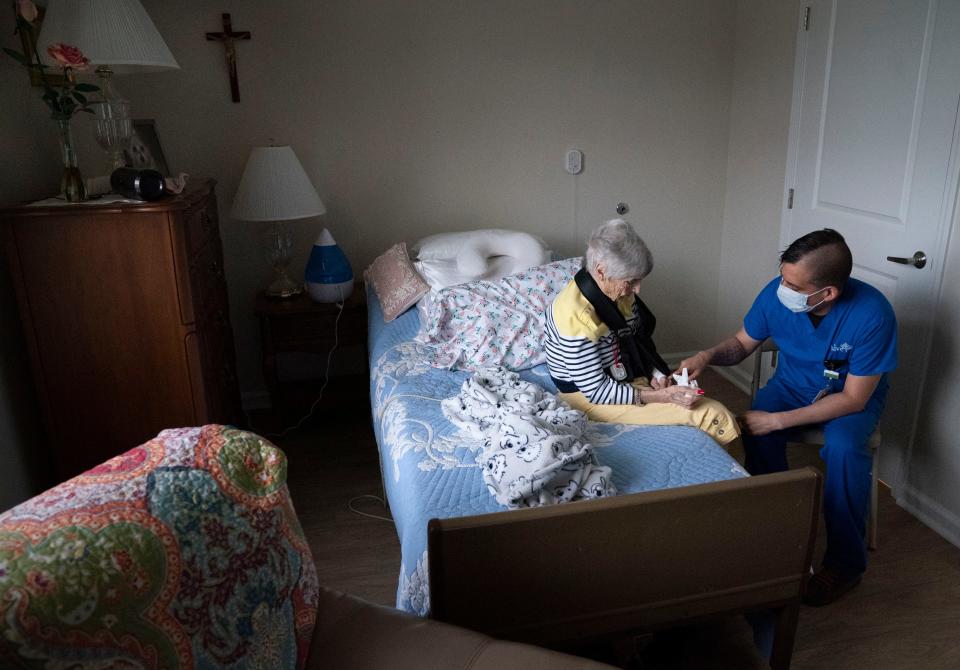Six reasons why Alive should remain a nonprofit hospice in Middle Tennessee | Opinion
Why would a thriving, patient-centered, healthcare non-profit with a solid bottom line, enviable name recognition, endless community support, a month of benefit concerts from many of Nashville’s biggest singers and songwriters, and a long history of service to marginalized communities sell out to a publicly-traded company?
You might ask the leadership of Alive Hospice, the nation’s third oldest hospice and the only remaining non-profit hospice provider in Middle Tennessee. These folks are currently mulling just such an irrevocable step.
Alive leadership has secretly pursued the dismemberment of this beloved institution. Let there be no confusion — there are loads of bad hospices out there.

Alive doesn’t need to become another one.
Not in patients’ best interests. The headline of a February 2023 RAND Corporation report reinforces the sad news that, “Care Experiences Are Worse in For-Profit Hospices Than in Not-for-Profit Hospices” based upon family surveys from 3,100 hospices nationally.
Not in the community’s best interest. If this sale is completed, Middle Tennessee will lose its only non-profit hospice provider, as well as the region’s only dedicated in-patient hospice facilities. If you are concerned about care rationing or choice rationing, this sale would result in both.
Not in the best interest of the underserved. Due to the generosity of donors, Alive has proudly served its poor and marginalized neighbors without regard to their ability to pay. Current Alive leadership has provided no comment on how or whether those communities would be served in the future. Are these vulnerable patients supposed to beg for grants from whatever entity is left to administer the transaction proceeds?
Not in the staff’s best interest. Let’s face it, the staff at Alive have very difficult jobs – they bring their best selves to work every day when families are facing their worst days. Because they aren’t on the clock, they serve the dying and their families with tenderness, skill, and reverence.
Not in the best interest of the donors. The Alive residences in Murfreesboro and Nashville were built with substantial community-funded capital campaigns, and the on-going work of Alive is supported with considerable philanthropic support. These gifts were made to a hospice provider, not to a foundation. Think of the chilling effect it would have on capital campaigns throughout Tennessee if this leadership team were allowed to thwart the express wishes of donors by selling out to a for-profit entity. If the will of donors can be thwarted so easily, who would donate to another capital campaign in the State?
Not in the best interest of those of us who will no longer have a hospice that shares our values to care for us when it's our time to die. For those of us fortunate enough to have an Alive caregiver by our side as we hugged our most beloved ones in their peaceful last breaths, reducing that experience to a transactional bottom line makes my blood boil.
So, ask yourself:

Whose interest does this transaction serve? The shareholders and executives of the for-profit purchaser.
To whom does the Alive board owe its duty? Not to the shareholders and executives of a for-profit entity.
This is wrong.
Mary Falls is a former Alive board chair, former chair of the Alive Advisory Board, and former member and chair of numerous other area not-for-profit boards.
This article originally appeared on Nashville Tennessean: Six reasons why Alive should remain a nonprofit hospice

